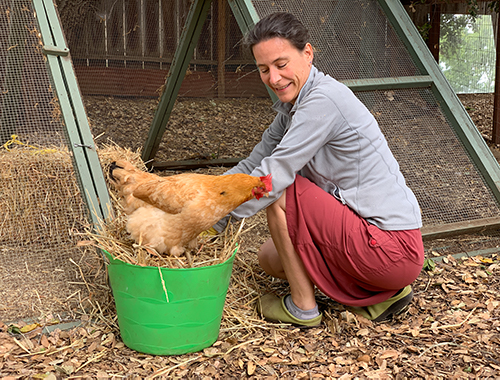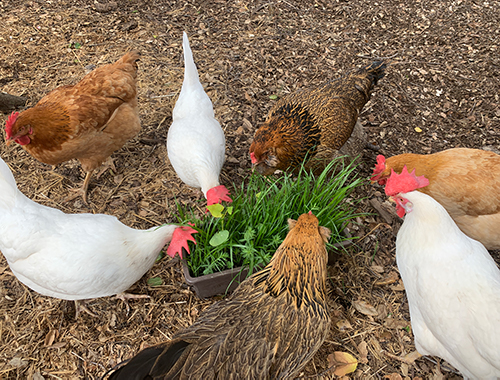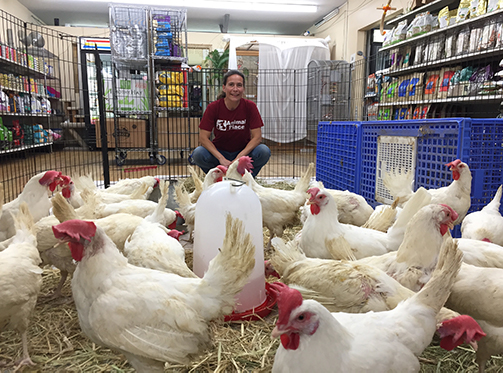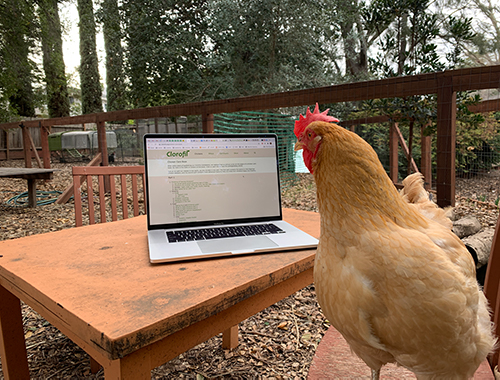
Are you thinking of having chickens, but don’t know if they are right for you?
Let’s look at the pros and cons of keeping chickens so you can make the right decision for your family.
First and foremost, chickens make awesome pets! They are fun, social, cute, and each has their own personality.
They are also quite smart! Research from the University of Bristol has demonstrated that chickens outperform not only cats and dogs but also human toddlers in multiple cognitive and behavioral tests. They have about 30 unique vocalizations used to convey different messages. For example, they make different sounds for land and aerial predators.
Chickens are also wonderful garden helpers! They eat bugs and grubs, weed the garden, aerate the compost pile, and generate nitrogen fertilizer.
And they lay eggs! Well, the hens do… And they are probably the most “humane” eggs you will ever find (see this article on “egg labels”) because you fully care for them from the day you bring them home to the day they peacefully pass away in their coop.
So, what’s not to like? Show me the chickens!
Well… here are some other things to think about before you decide.
Most importantly, chickens are a long-term commitment. They usually live 8 to 10 years. Also, if you get them for their eggs, know that as a hen ages, she will lay less, and there is no other humane option than to keep her.
Chickens need some of your time each day. Not much, about 30 minutes or so once the coop is set up. Who is going to take care of them when you are out of town? Is your family onboard with the chicken keeping and ready to get their hands dirty too?

Keeping chickens is more expensive than you think. Don’t get chickens to have cheap eggs, they will be more expensive than any you can buy.
Chickens don’t require a ton of space. But the more space the better, both in and outdoors. See next tab for the housing requirements.
Last but not least, check if your town allows you to keep chickens. Every city has their own rules, so call them. Many do not allow roosters and have a maximum number of chickens you can have and some require permits. While you are talking to them, also check the regulations related to waste disposal, the minimum distance required from the coop to the property lines, etc.






